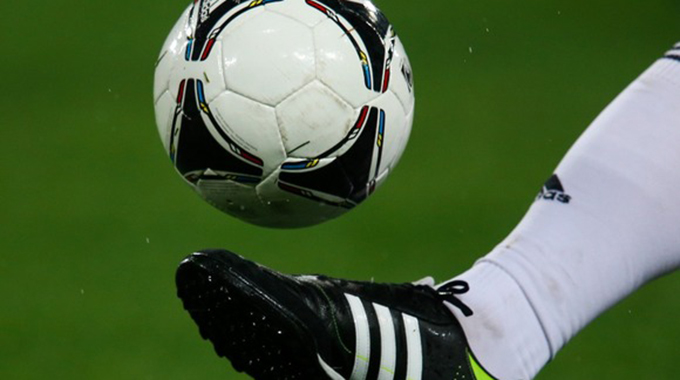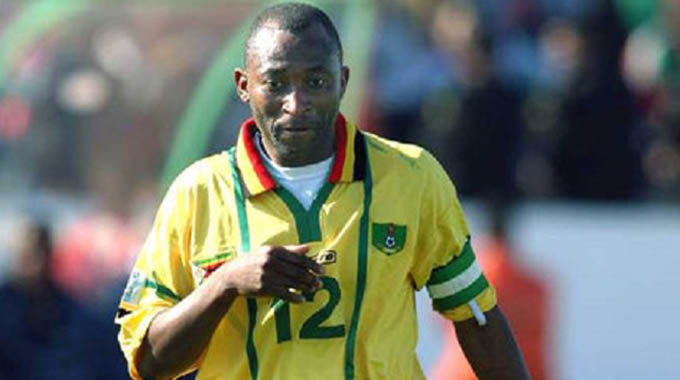Grand victory, great campaign

Robson Sharuko
Senior Sports Editor
LAZARUS MUHONI scored, yes he did, the controversial pick grabbing the goal which powered the Warriors Class of 2002 to victory, as they started an historic journey, which would take them to the Promised Land.
Captain Peter Ndlovu provided the assist, firing the ball across the Mali goal area, for Muhoni to stab it home, just past the half-hour mark, for the only goal of a tense showdown, at the National Sports Stadium.
No one knew it back then, on September 8, 2002, that Muhoni’s golden goal, and the victory, would provide the Warriors with a foundation, on which they would build their first successful AFCON qualifying campaign.
For 22 years, their long-suffering fans had watched their favourite team toil, in the jungles of African football, without reward as the search for a dance, at the Nations Cup finals, kept reaping no dividends, for the Warriors.
Even the Dream Team came short, collapsing at the final hurdle in their backyard, after Reinhard Fabisch and his men could only draw against Zambia, in a final home qualifier, where they needed a victory.

Peter Ndlovu
And, the more the Warriors tried, and the more they failed, appeared to convince some of their fans, if not the players, there was substance in the words of their former coach, Ben Kouffie.
The Ghanaian, axed after the team self-destructed, in that final ’92 Nations Cup qualifier against Congo-Brazzaville, suggested that even if ZIFA hired a coach from the moon, the Warriors would still not qualify for the continent’s biggest football showcase.
While coach Sunday Chidzambwa, and his skipper Ndlovu, provided the remaining link to the days of the Dream Team, in the era of the new millennium, a new crop of players, determined to make their mark on the big stage, had emerged on the scene.
The other players, thrown into the fray to start that latest qualifying battle by Chidzambwa, were goalkeeper Energy Murambadoro, George Mbwando, Allan Johnson, Dazzy Kapenya, Kaitano Tembo, Thulani Ncube, Lloyd Chitembwe, Johannes Ngodzo and Benjani Mwaruwari.
Later, in the second half, Harlington Shereni and Callisto Pasuwa came in for Johnson and Muhoni.
Muhoni was the very controversial pick, to start this assignment but, after 32 minutes, he repaid the faith, which his coach had invested in him, when he swept home an assist from his skipper, for the goal which made all the difference.
His refusal to be swallowed by the grand occasion, and to be affected by playing against a Malian side packed with European-based players, served him well that afternoon.
“In that game at the National Sports Stadium, I was playing for Black Rhinos in the local league yet some of the players had come from Europe like (Seydou) Keita but I was never intimidated,” Muhoni later told The Herald
In a way, it’s a character, which that Class of Warriors appeared to have in abundance, as they simply grew from strength to strength, after that superb win, to eventually become the first group, from this country, to qualify for the AFCON finals.
Incredibly, this was the first contest, between Zimbabwe and Mali, in an international football match and, an estimated 50 000 fans converged, at the giant stadium, to watch the Warriors start their latest adventure, to try and qualify for the AFCON finals.
And, they went home a happy lot, after their team squeezed the win they needed to start their campaign, in the best way possible, by taking three points, from the group favourites.
The clean sheet was also crucial, highlighting Chidzambwa’s strategy to try and punish his opponents with a defence which gave very little away, with the coach always telling his men, if they didn’t concede, they would not lose.
It’s an aspect of their game, which served them well, even in the game against Mali in Bamako, as they frustrated the Eagles, in their backyard, in a goalless draw.
In their six group games, they conceded just three goals, with two of those goals coming in one game, in a surprise 1-2 defeat in Seychelles, on June 7, 2003.
The Indian Ocean islanders appeared to have perfected the art of scoring against those Warriors, as they scored in the reverse fixture here, in a 1-3 defeat, with the Ndlovu brothers — Peter and Adam — on target for their motherland.
The Eagles of Mali failed to score, in 180 minutes against the Warriors, in those qualifiers, with Chidzambwa’s men taking four, out of a possible six points, from their head-to-head contest, against the West Africans.

Sunday “Mhofu” Chidzambwa
Eritrea also failed to score, against the Warriors, with the East Africans losing 0-1, in their backyard, to a Peter Ndlovu goal, before going down 0-2 here, with the inspirational Zimbabwean skipper, grabbing a brace.
Mali ended with 13 points, from their six games, the same number of points as the Warriors but, in an era where goal difference was used to separate teams, in the qualifiers, the Eagles took first place, and the automatic ticket, to the 2004 Nations Cup finals.
Their eight-goal return was the same as the Warriors but the West Africans conceded just one goal, scored by Muhoni in that first game at the National Sports Stadium, while Zimbabwe conceded three goals.
Had CAF adopted the head-to-head formula, which they use now when countries end with the same number of points, the Warriors would have finished as the top side, with the Eagles in second place.
However, 13 points were always going to be too good, for a team not to make the Nations Cup finals, and the Warriors picked the best runners-up slot, after Sierra Leone were beaten, in their final qualifier, in Gabon.
Zambia, with 11 points, ended two points adrift of the Warriors, in the final ranking for the team which would grab the sole ticket, reserved for the best runners-up, in the qualifiers.
The confirmation the Warriors had qualified, for their first AFCON finals, didn’t only make front-page headlines, in this newspaper, but sent Harare and Bulawayo into an impromptu party, as the country celebrated finally securing their ticket to the showcase.
Tragically, a 10-year-old boy died, in the wild celebrations in Chitungwiza, when he fell, as he ran in the streets in the dormitory town, and was trampled upon by some of those, who were celebrating their team’s finest hour.
The Warriors have since qualified for five AFCON finals, since their breakthrough in 2003, but none has attracted the frenzy, which greeted their maiden ticket to Africa’s biggest football festival.
And, as the country prepares to celebrate the 41st anniversary of its Independence, the foundation that was set by Muhoni, and his teammates, with that victory against Mali, in September 2002, has remained a big part of local football’s folklore.











Comments